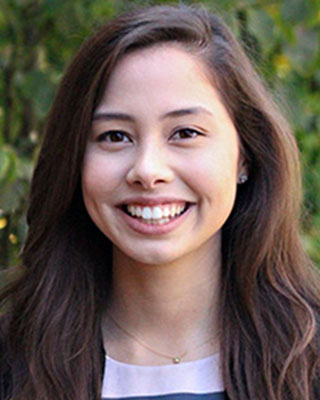Advancing a Career in Pediatric Care

Cecilie Simonsen
Speech Language Pathologist, Seattle Children’s Hospital
After completing her undergraduate degree in neuroscience, Cecilie Simonsen knew she wanted to help people communicate, specifically working with medically complex populations. Cecilie decided to pursue a master’s degree in speech-language pathology to give her the knowledge and confidence she needed to enter the field.
The University of Washington Master of Science in Medical Speech-Language Pathology was everything Cecilie was looking for — it offered several clinical placements, a solid foundation in research, plus an interprofessional component that allowed her to discuss different clinical cases with other medical professionals. In this interview, the 2020 grad talks about how earning a master’s from the UW helped launch her career.
Can you tell us about your first job after you earned your master’s degree?
I was a clinical fellow at Lucile Packard Children’s Hospital at Stanford, where I completed my full-time summer externship as the final part of my UW clinical practicum. I worked as a speech-language pathologist - clinical fellow and evaluated and treated feeding and swallowing disorders in medically complex infants.
Why did you choose the University of Washington?
The University of Washington appealed to me since it was one of the few schools offering a specialty in the medical aspect of speech-language pathology. When I was looking at graduate programs, I sought a program with a variety of clinical experiences. The University has notably strong partnerships with several local hospitals and clinics, as well as connections with numerous national hospitals for completing a full-time externship. Since the UW operates on a quarter system, you get four different clinical experiences each year, whereas other schools offer only three clinical rotations per year.
Why did you decide to enroll in a speech-language pathology master’s program with a medical focus rather than a more general SLP program?
I’m considered a nontraditional student since I didn't complete my undergraduate degree in communication sciences and disorders. My undergraduate degree was in neuroscience and I was interested in the medical aspects of speech-language pathology, such as dysphagia, traumatic brain injury and stroke. The MedSLP program offers clinical experiences focused on the medical setting and unique, specialized medical coursework, such as the pediatric feeding and swallowing course.
Can you tell us about the quality of professors and clinical supervisors you worked with during your program?
The professors and clinical supervisors are very dedicated and down to earth. It was great to learn from experts currently working in the field who've held a variety of positions, such as working in hospital, clinic or school settings, and treat patients of all ages.
An example that highlights UW’s dedication to our learning was the use of a clinical learning profile. We’d fill out a clinical learning profile before each of our rotations to share with our clinical supervisors. This document helped establish an initial relationship with our supervisor and conveyed our learning styles, which set the foundation for open communication during the quarter to maximize growth during the placement.
Was there a sense of community within your cohort? Did your classmates support each other?
Within my cohort we developed a loyal friend group. My classmates functioned as an incredibly encouraging network, which I often confided in for academic and socioemotional support.
If I knew someone in my cohort was working with a client with a particular disorder, and I was encountering that disorder for the first time, I would ask them for advice and how they approached their clinical session. The smaller cohort size at UW provided an excellent sense of community and we still keep in touch.
How did the clinical rotations and experiences in the program help you advance your career or shape your goals?
In the first year during my in-house clinic, I was exposed to a variety of populations within a controlled environment, which allowed me to gain experience while narrowing down my interests. From leading youth outreach programs and through pediatric rotations in the in-house clinic, I found that my passion lay with pediatric speech-language pathology. In my second year, I had off-campus clinical placements. I ended up interning at Mary Bridge Children’s Hospital in my first quarter, which further solidified my interest in pediatrics.
Another component of the UW program I valued was the professional seminars offered throughout the program. These courses answered practical, real-world questions like: How do you get your first job? How do you interview? How do you specialize? How do you adjust to new settings? I appreciated that in addition to clinical coursework, the UW prepares students to navigate the field upon completion of the program.
Would you recommend the UW MedSLP program to others in the future?
Yes, absolutely. The UW MedSLP program offers tailored coursework, medical clinical placements, interprofessional experiences, supportive professors and clinical supervisors who value evidenced-based practice. The UW provides a well-rounded experience, and the program sets you up with the foundational skills to grow as a clinician throughout your career.